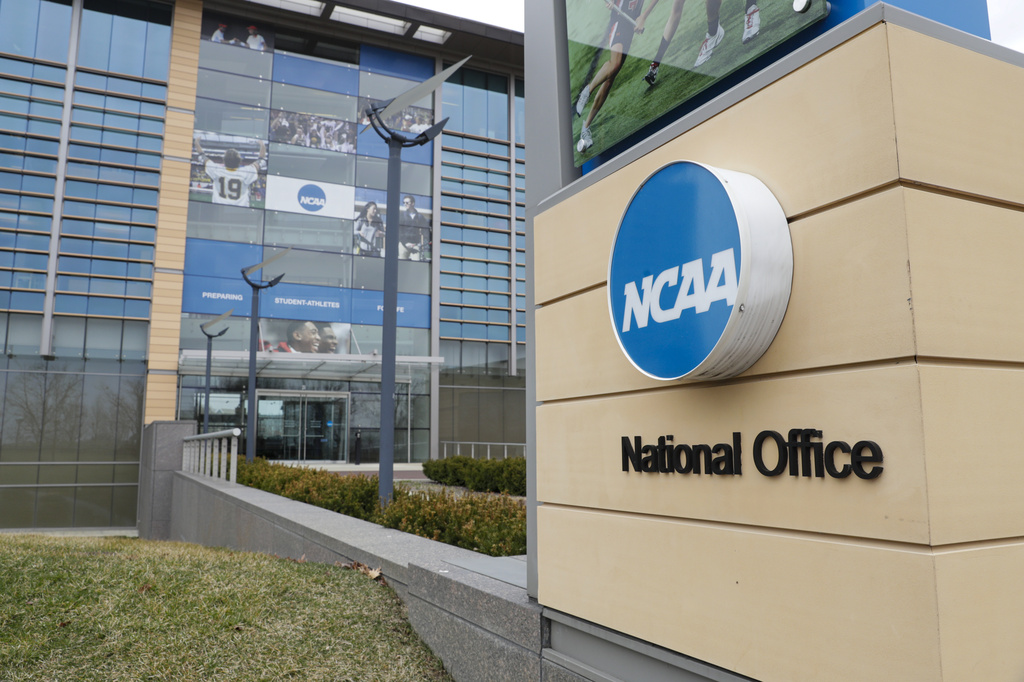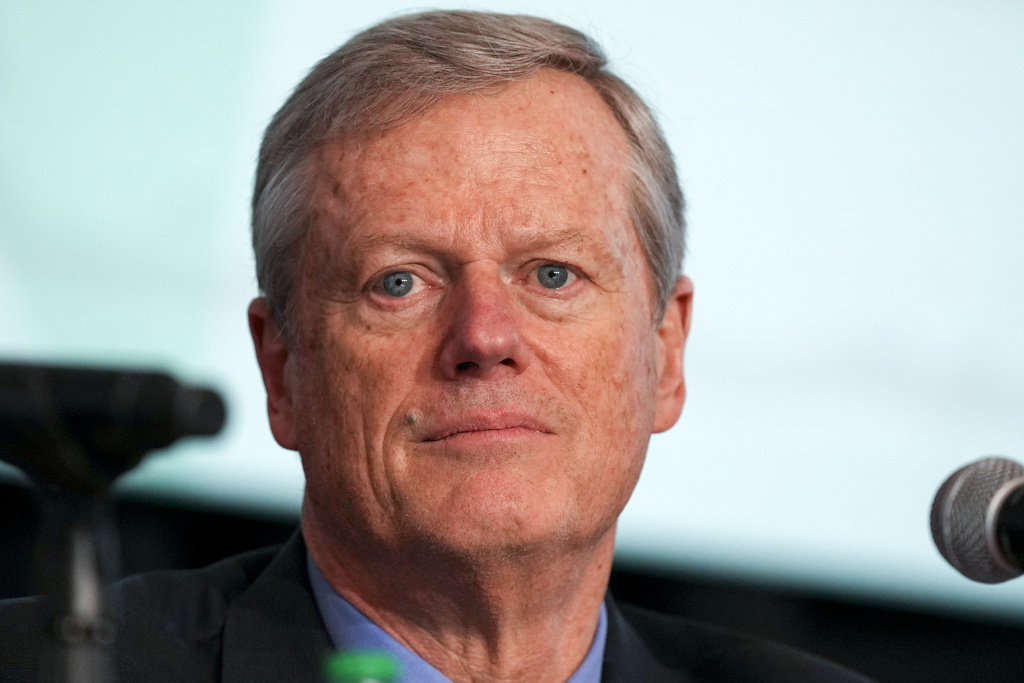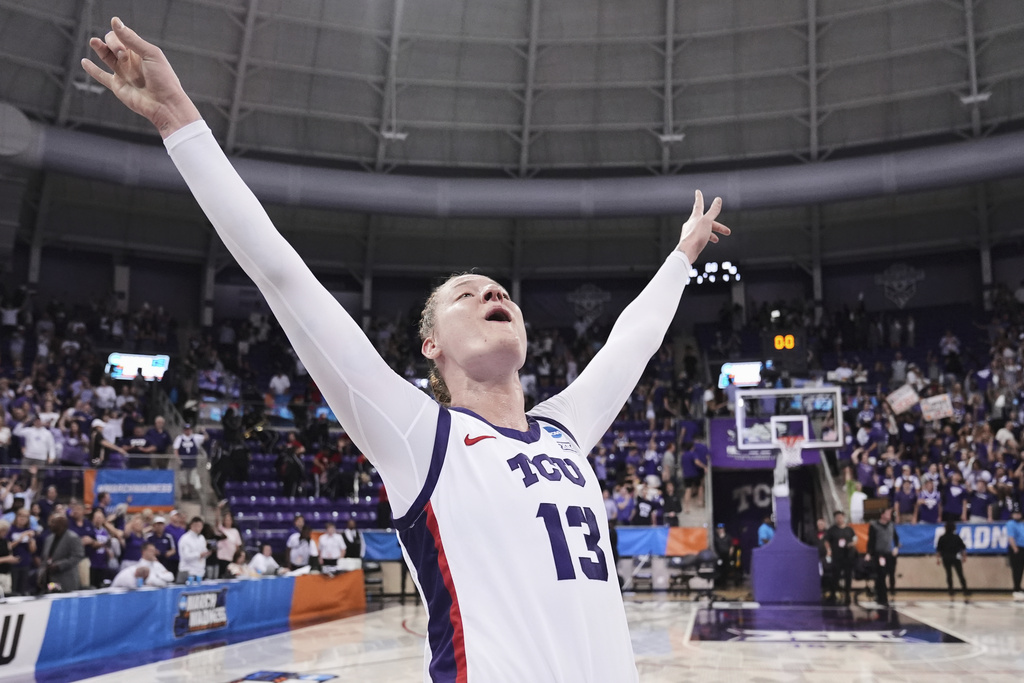
Conference commissioners praised a judge's approval of a $2.8 billion antitrust lawsuit settlement as a means for bringing stability and fairness to an out-of-control college athletics industry but acknowledged there would be growing pains in implementing its terms.
At a 30-minute virtual press conference on Monday, commissioners from the ACC, Big Ten, Big 12, Pac-12, and SEC reiterated their call for congressional action to supplement and even codify the agreement. They stressed that cooperation at every level of college sports would be essential to make it effective.

They said it was too early to address how violators of rules surrounding revenue sharing and name, image, and likeness agreements The newly hired College Sports Commission CEO, Bryan Seeley, would play a major role in determining penalties and would be punished and noted.
The new era of college athletics has arrived after U.S. District Judge Claudia Wilken gave final approval Friday night to what's known as Alston et al. v. NCAA. Starting July 1 , each school can share up to about $20.5 million with their athletes, and third-party NIL deals worth $600 or more will be analyzed to ensure they pay appropriate "market value" for the services provided by athletes.

Some of the topics addressed Monday:
Binding conferences to terms
The conferences drafted a document that would bind institutions to enforcement policies even if their state laws are contradictory. It would require schools to waive their right to pursue legal challenges against the CSC. It also would exempt the commission from lawsuits from member schools over enforcement decisions, instead offering arbitration as the main settlement option.
Consequences for not signing the agreement would include risking the loss of league membership and participation against other teams from the Power Five conferences.
Big 12 Commissioner Brett Yormark said the document remains a work in progress but that he's gotten no pushback from his schools.
“I look to get that executed here in short order,” he said, "and know it will be very necessary for all the conferences to execute as well."
Revenue sharing directives
There has been no directive given to individual schools on how to determine the allocation of revenue-sharing payments, commissioners said. It's widely acknowledged that athletes in football and basketball are expected to receive the majority of the money.
I know that for all five of us, no one is forgetting about them. Olympic sports "And continuing to ensure we've invested at a high level in all of our sports," ACC Commissioner Jim Phillips said.
College Sports Commission CEO
The commissioners said Seeley, as Major League Baseball executive vice president of legal and operations, was uniquely qualified to lead the CSC, which is responsible for ensuring that schools comply with the rules.
“Culture doesn’t change overnight,” Seeley told The Athletic over the weekend. “I don’t expect that to happen overnight, but I do think that the schools that have signed on to the settlement want rules and want rules to be enforced. Otherwise they wouldn’t have signed on to the settlement. I think student-athletes want a different system. So I think there is a desire for rules enforcement. There’s a desire for transparency.”
Sankey said Seeley is well-versed in areas of implementation, development, and adjustment of rules and in NIL disputes requiring arbitration.
Yormark said: "You want people not to run away from a situation but to run to a situation. He ran here, and he's very passionate to make a difference and to course correct what's been going on in the industry."
Skepticism about enforcement
Deloitte's "NIL Go" program and LBI Software will track NIL deals and revenue-sharing contracts, and the commissioners shot down skepticism about the ability of those tools to enforce terms of the settlement. SEC Commissioner Greg Sankey said football and basketball coaches he spoke with in February were unanimous in wanting regulation.
"They have the responsibility to make what they asked for work," he said.
Congressional action
NCAA President Charlie Baker has been pushing Congress for a limited antitrust exemption that would protect college sports from another series of lawsuits, and the commissioners want a uniform federal NIL law that would supersede wide-ranging state laws.
We're not going to have Final Fours and College Football Playoffs and College World Series with 50 different standards," Sankey said, "so that's a starting point.
Big Ten Commissioner Tony Petitti said that the willingness of administrators to modernize the college athletics model should prompt federal lawmakers to move forward with codifying the settlement.
Sankey's meeting with Trump
Sankey confirmed a Yahoo Sports report that he and Notre Dame athletic director Pete Bevacqua played golf with President Donald Trump on Sunday. Sankey said he appreciates Trump's interest in college sports and that it was helpful to share perspectives on the path forward. Trump reportedly considered a presidential commission on college sports earlier this year.
Sankey declined to disclose details of their talks.
"I think those are best left for the moment on the golf course," he said.
___
AP college sports: https://apnews.com/hub/college-sports


0 Komentar